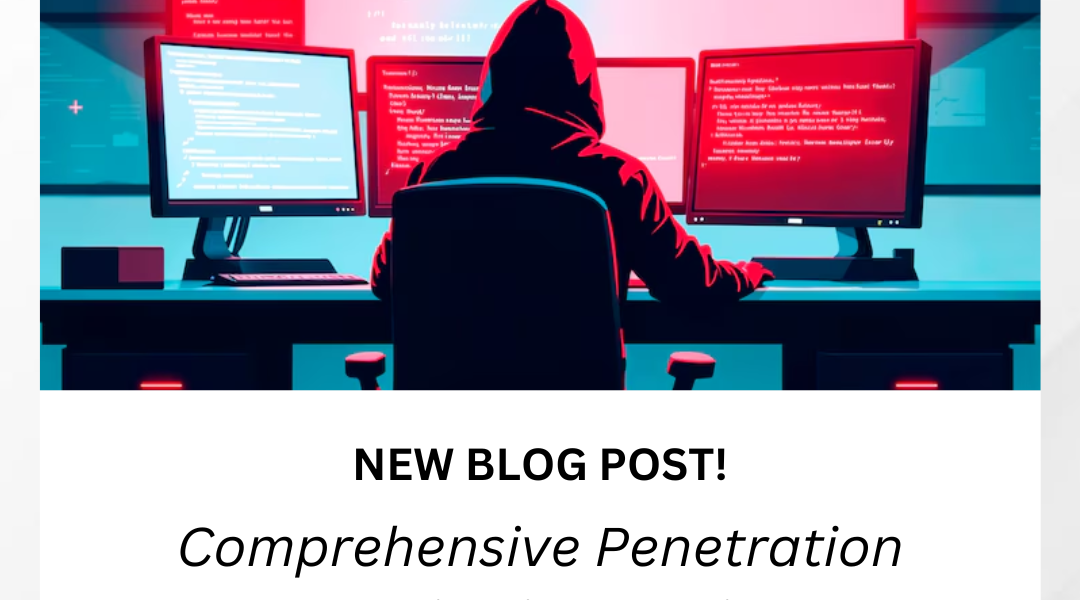Introduction: Why Every Business Needs a Strong Security Network
A security network is essential for protecting businesses from cyber threats such as hacking, data breaches, and ransomware attacks. In today’s digital world, companies rely on this to safeguard sensitive information, prevent unauthorized access, and ensure smooth operations. Without a robust security, businesses risk financial losses, reputational damage, and legal penalties.
Are you confident in your security network? If not, we’re here to help! Contact us today for a FREE CONSULTATION and take the first step toward securing your business.
What Is a Security Network?
It is a system of hardware, software, and protocols designed to protect digital assets from cyber threats. It includes:
- Firewalls to block unauthorized access
- Intrusion Prevention Systems (IPS) to detect and prevent threats
- Encryption to secure sensitive data
- Access control to regulate who can enter your network
With cyberattacks on the rise, having a strong network isn’t an option—it’s a necessity.
Learn more from Cisco on network security
Real-Life Cyberattacks and Their Lessons
1. The WannaCry Ransomware Attack (2017)
A ransomware virus called WannaCry spread to 230,000 computers worldwide, locking files and demanding a Bitcoin ransom.
- Lesson: Keeping your software updated is crucial to prevent cyberattacks.
2. Target’s Data Breach (2013)
Hackers accessed Target’s payment system using a third-party vendor’s credentials, stealing 40 million customer credit card details.
- Lesson: Secure third-party access and use multi-layered security to prevent breaches.
More on network security from Palo Alto Networks
Key Components
1. Firewalls: Your First Line of Defense
A firewall filters network traffic, allowing only authorized connections.
Example: A university’s smart fish tank was hacked, giving cybercriminals access to the school’s secure database. A properly configured firewall could have prevented this attack.
2. Intrusion Prevention Systems (IPS): Stopping Threats in Real Time
An IPS monitors network traffic, detecting and blocking cyber threats.
Example: A healthcare provider used an IPS to block an attack from hackers trying to access patient medical records.
3. Virtual Private Networks (VPNs): Secure Remote Access
A VPN encrypts data, making it unreadable to hackers even on public Wi-Fi.
Example: A remote employee logged into a company network at a coffee shop without a VPN. A hacker intercepted their login credentials, gaining access to confidential business data.
4. Access Control: Limiting Who Gets In
Multi-factor authentication (MFA) ensures that only authorized personnel can access sensitive data.
Example: A former employee tried to access confidential files after leaving a company. Their access was revoked, preventing a data breach.
5. Anti-Malware Solutions: Protecting Against Viruses and Spyware
Anti-malware software detects and removes viruses, ransomware, and spyware before they can cause harm.
Example: A law firm avoided a ransomware attack after an employee clicked a phishing email. Their anti-malware software blocked the threat.
Best Practices for a Strong Security Network
- Keep Software Updated: Hackers exploit outdated software to attack businesses.
- Train Employees: Phishing scams and weak passwords increase risk—education is key.
- Use Multi-Factor Authentication (MFA): Adds an extra layer of security for logins.
- Monitor Network Traffic: Detects suspicious activity early.
- Perform Regular Security Audits: Helps find vulnerabilities before they become threats.
- Have a Cyber Incident Response Plan: Ensures your company recovers quickly from attacks.
Get a FREE Security Consultation Today!
Cyber threats are evolving, and no business is too small to be targeted. A strong security network is your best defense against data breaches, ransomware, and hacking attempts.
Want expert guidance on securing your business? Contact us for a FREE CONSULTATION today!
- Evaluate your network’s security risks
- Get personalized cybersecurity solutions
- Protect your business from costly cyberattacks
Don’t wait until it’s too late—secure your business today! Contact us now!
FAQs
1. What is the difference between network security and cybersecurity?
Network security protects data and systems from unauthorized access, while cybersecurity covers a wider range of threats, including cloud security, malware, and identity theft.
2. Why is encryption important in a security network?
Encryption converts data into coded text, making it unreadable to hackers. Even if they intercept it, they can’t use it without the encryption key.
3. How can small businesses improve network security?
- Install firewalls to block unauthorized access
- Set up multi-factor authentication (MFA)
- Use VPNs for secure remote work
- Train employees to recognize cyber threats
4. How often should businesses update their security protocols?
At least every three months—or immediately if a new cyber threat emerges.
5. What are the warning signs of a network security breach?
- Unusual login attempts
- Slow network performance
- Unauthorized file access
- Ransom demands or suspicious activity


